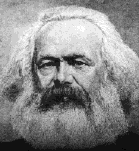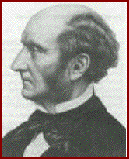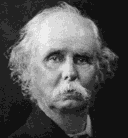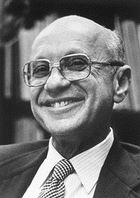Sunday, October 6, 2013
Pacific trade pact ministers agree on tariff elimination rule on final day
Ministers of the 12 countries in the Trans-Pacific Partnership
Agreement (TPPA) free trade negotiations agreed yesterday to uphold a
basic rule of total tariff elimination in wrapping up their three-day
meeting on the Indonesian island of Bali, with the goal of reaching a
deal by year-end.
During their efforts to compile work plans for advancing talks on
contentious areas, the ministers discussed market access that covers
tariff elimination rules and intellectual property rights among others,
despite each country having its own sensitivities.
On Japan's sensitive items, a ruling party lawmaker in charge told
reporters after the meeting that Prime Minister Shinzo Abe's Liberal
Democratic Party now plans to study the possibility of eliminating
tariffs on the items that have been considered untouchable, including
rice.
"If it doesn't hurt (Japan's agriculture), it would be up to the government to negotiate" and decide policies, Nishikawa said.
The Japanese government faces strong domestic pressure to retain
tariffs on imports of rice, wheat, beef, pork, dairy products and sugar
to protect domestic agriculture, but challenges are expected in its
attempt to protect them from cheaper foreign products.
To speed up the talks that are already over three years old, the member
countries are now planning to arrange a ministerial meeting in
December.
"The ministerial meeting is expected to be held toward the end as we
aim to conclude a deal within this year," said Japan's TPPA minister
Akira Amari after the meeting, adding that Japan will work to facilitate
talks to meet the year-end target.
The ministers will submit a report on the outcome of their latest
meeting to the leaders arriving for a TPPA summit to be held tomorrow as
scheduled despite US President Barack Obama's cancellation of his trip
to Bali due to the partial shutdown of the federal government over a
budget impasse, officials said.
Before the day's meeting began in the morning, Amari told reporters
TPPA members are making progress in the talks and Obama's absence will
not affect their aim of reaching a deal this year.
"We were shocked that President Obama couldn't make it, but we quickly
decided that we'll maintain the momentum" of the negotiations, Amari
said.
But Malaysian Prime Minister Datuk Seri Najib Razak said at a press
conference it will take longer to conclude the TPPA than its initial
year-end timeline, Malaysian media reported.
"We will have our discussions in Bali and we will have a sense of
whether that timetable is feasible," he said, adding, "But our sense is
that (the TPPA conclusion) may take longer than the time horizon of the
end of the year," according to the report.
The ministerial meeting began Thursday and was also held Friday. The
meeting, together with the preceding meeting of chief negotiators and
the summit, is being held on the margins of the Asia-Pacific Economic
Cooperation forum.
After receiving the ministers' report, the leaders are expected to
announce that the members' work on the TPPA is close to a finish,
according to negotiation sources.
The report will be announced together with the leaders' statement at the end of the TPPA summit.
The 12 TPPA countries – Australia, Brunei, Canada, Chile, Japan,
Malaysia, Mexico, New Zealand, Peru, Singapore, the United States and
Vietnam – have been aiming to reach a broad agreement in October. -
Kyodo, October 7, 2013.
Wednesday, October 2, 2013
Time for Gates to go, some top Microsoft investors tell board
Published: Tuesday, 1 Oct 2013 | 9:50 PM ET

Adam Jeffery | CNBC
Bill Gates
Three of the top 20 investors in Microsoft
are lobbying the board to press for Bill Gates to step down as
chairman of the software company he co-founded 38 years ago, according
to people familiar with matter.
While Microsoft Chief Executive Steve Ballmer has been under pressure for years to improve the company's performance and share price, this appears to be the first time that major shareholders are taking aim at Gates, who remains one of the most respected and influential figures in technology.
A representative for Microsoft declined to comment on Tuesday.
(Read more: Ballmer goes out punching at last Microsoft meeting)
There is no indication that Microsoft's board would heed the wishes of the three investors, who collectively hold more than 5 percent of the company's stock, according to the sources. They requested the identity of the investors be kept anonymous because the discussions are private.
While Microsoft Chief Executive Steve Ballmer has been under pressure for years to improve the company's performance and share price, this appears to be the first time that major shareholders are taking aim at Gates, who remains one of the most respected and influential figures in technology.
A representative for Microsoft declined to comment on Tuesday.
(Read more: Ballmer goes out punching at last Microsoft meeting)
There is no indication that Microsoft's board would heed the wishes of the three investors, who collectively hold more than 5 percent of the company's stock, according to the sources. They requested the identity of the investors be kept anonymous because the discussions are private.
Who's on the list to head Microsoft?
Ford CEO Alan Mulally may be
in the running to take Steve Ballmer's job at MIcrosoft but she's not
the only one, says Kara Swisher, All Things Digital.
Gates owns about 4.5 percent of the $277 billion company and is its largest individual shareholder.
The three investors are concerned that Gates' presence on the board
effectively blocks the adoption of new strategies and would limit the
power of a new chief executive to make substantial changes. In
particular, they point to Gates' role on the special committee searching
for Ballmer's successor.
They are also worried that Gates -
who spends most of his time on his philanthropic foundation - wields
power out of proportion to his declining shareholding.
Gates,
who owned 49 percent of Microsoft before it went public in 1986, sells
about 80 million Microsoft shares a year under a pre-set plan, which if
continued would leave him with no financial stake in the company by
2018.
Gates lowered his profile at Microsoft after he handed the CEO role to
Ballmer in 2000, giving up his day-to-day work there in 2008 to focus
on the $38 billion Bill & Melinda Gates Foundation.
In
August, Ballmer said he would retire within 12 months, amid pressure
from activist fund manager ValueAct Capital Management.
Microsoft is now looking for a new CEO, though its board has said
Ballmer's strategy will go forward. He has focused on making devices,
such as the Surface tablet and Xbox gaming console, and turning key
software into services provided over the Internet. Some investors say
that a new chief should not be bound by that strategy.
(Read more: Can Bill Gates save Microsoft?)
Microsoft is still one of the world's most valuable technology
companies, making a net profit of $22 billion last fiscal year. But its
core Windows computing operating system, and to a lesser extent the
Office software suite, are under pressure from the decline in personal
computers as smartphones and tablets grow more popular.
Shares of Microsoft have been essentially static for a decade, and the company has lost ground to Apple and Google in the move toward mobile computing.
One of the sources said Gates was one of the technology industry's
greatest pioneers, but the investors felt he was more effective as chief
executive than as chairman
Malaysia should ditch Pacific trade pact – it will hurt trade with China, UN economist warns
BY TRINNA LEONG
October 03, 2013
October 03, 2013
 Jomo says Malaysian negotiators are inexperienced to deal with complex issues in the TPPA. – Pic courtesy UN RadioA
12-nation Pacific free trade pact pushed by the United States will not
benefit Malaysia as it is meant to isolate fast-growing economic giant
China, United Nations economist Jomo Kwame Sundaram said last night
Jomo says Malaysian negotiators are inexperienced to deal with complex issues in the TPPA. – Pic courtesy UN RadioA
12-nation Pacific free trade pact pushed by the United States will not
benefit Malaysia as it is meant to isolate fast-growing economic giant
China, United Nations economist Jomo Kwame Sundaram said last night
Malaysia is currently in talks to ratify the Trans Pacific Partnership
Agreement (TPPA) but there has been growing opposition to the deal due
to its impact on procurement, medicines and business regulations in the
country.
“The purpose of the TPP is to isolate China and you don’t want to do
that to your main trading partner,” the prominent Malaysian economist
said at the launch of his latest book in Kuala Lumpur.
The former University Malaya academic has worked as the United Nations Assistant Secretary-General for Economic Development in the United Nations Department of Economic and Social Affairs (DESA) since 2005.
Jomo said the trade agreement’s main purpose to isolate China became
meaningless after the US narrowed its deficit against the Asian giant.
“The US dollar has devalued the last few years so the huge US deficit
with China has closed,” he said after launching his book Malaysia@50 in
Universiti Malaya.
“So now it’s yesterday’s problem. Why should we get stuck in such a
policy and an agreement which was hatched up earlier?” he added.
The trade pact has been viewed as the US’s entry point into market
dominance within Asia, which China sees as an attempt by Washington to
overstep on the Chinese’ backyard.
The Wall Street Journal had quoted the former World Bank chief for
China, Yukon Huang as saying the pact discouraged and complicated
shipping of parts to and from Asian countries.
He pointed out the implication would affect China’s role as the final
assembly point for electronic items whose parts are usually from other
nations.
Jomo believed that instead of getting into trouble, the Malaysian
government should be aware of the potential trade agreement between the
US and the European Union.
“The bigger problem now is that the US and EU will come up with an
economic NATO that’s going to weaken the WTO,” he said, referring to the
North Atlantic Treaty Organisation defence pact and the World Trade
Organisation.
Jomo expressed concern that a trade pact between Western nations would
affect Malaysia’s exports, in particular palm oil which competes with
other vegetable oils including the popular soya oil in the US.
“That’s why we need to keep multilateral agreements,” the economist
said, explaining that such agreements allow Malaysia to have more
control over negotiating the terms.
He also reasoned that Malaysia’s trade negotiators are inexperienced to
deal with such a complex agreement, placing the country at a losing end
at the bargaining table.
At the centre of the protests against the TPPA is concern that it would
destroy the local and smaller enterprises. The agreement has appeared
more favourable to foreign established firms that would have the
technology and skills to receive tenders. While the awarding of
contracts appear merit based, many are worried that Malaysia got the
worst end of the deal.
“If this was an APEC deal, we have partners that are negotiable,” said
Jomo, referring to the 21-member Asia-Pacific Economic Cooperation.
“But with bilateral agreements, what power does Malaysia have against other countries?” he added.
Apart from the TPPA, Malaysia is also involved in the negotiations for
Regional Comprehensive Economic Partnership, another trade pact that
includes China. It is between Southeast Asian nations, China, India,
Australia, Japan, South Korea and New Zealand. - October 3, 2013
Obama warns Wall Street over fiscal crisis
October 03, 2013
President Barack Obama (pic) s ent
Wall Street a blunt warning Wednesday that it should be very worried
about a political crisis that has shut down the government and could
trigger a US debt default.
ent
Wall Street a blunt warning Wednesday that it should be very worried
about a political crisis that has shut down the government and could
trigger a US debt default.
Obama said he was "exasperated" by the budget impasse in Congress, in
an interview with CNBC apparently designed to pressure Republicans by
targeting the financial community moments after markets closed.
The president then met Republican and Democratic leaders for their
first talks since the US government money's ran out and it slumped into a
shutdown now well into its second day.
Obama was asked in the interview whether Washington was simply gripped
by just the latest in a series of political and fiscal crises which
reliably get solved at the last minute.
In unusually frank comments on issues that could sway markets, Obama warned that investors should be worried.
"This time's different. I think they should be concerned," Obama said, in comments which may roil global markets.
"When you have a situation in which a faction is willing potentially to
default on US government obligations, then we are in trouble," Obama
said.
Obama said he would not negotiate with Republicans on budget matters
until House lawmakers pass a temporary financing bill to reopen federal
operations and raised the $16.7 trillion (RM54 trillion) dollar debt
ceiling.
If the borrowing limit is not lifted by the middle of the month, the US
government could default on its debts for the first time in history.
"If and when... that vote takes place and the government reopens, and
if and when they vote to make sure Congress pays our bills on time so
America does not default on costs it's already accrued, then I am
prepared to have a reasonable, civil negotiation around a whole slew of
issues," Obama said.
The president said he had "bent over backwards" to accommodate
Republicans — a statement his foes would dispute — but warned it would
set a terrible precedent to allow lawmakers of any party to hold a White
House to ransom over raising the debt ceiling.
"Absolutely I am exasperated, because this is entirely unnecessary," Obama said.
The government shutdown has sent 800,000 federal workers home, closed
museums, national parks and monuments and crippled government services.
Obama wants a straightforward temporary spending bill to end the first
shutdown in 17 years, while Tea Party Republicans have repeatedly tied
the measure to a dismantling or delay of his signature health care law.
With neither side willing to budge, hopes of an early exit to the shutdown are fading.
"Most of the time you can see an end game," Republican Senator Johnny
Isakson told MSNBC. "Right now there's no end game in sight."
Some signs of incremental movement emerged, with Democrats pledging to
appoint negotiators to thrash out a long-term budget — provided that the
Republicans agree to an immediate six-week federal spending measure
with no anti-Obamacare provisions. — Reuters, October 3, 2013.
Subscribe to:
Posts (Atom)














































































































































